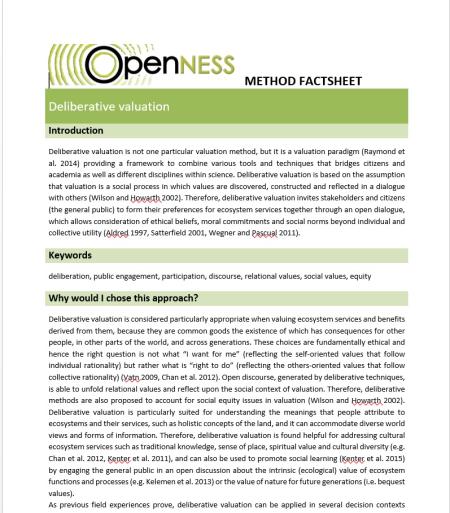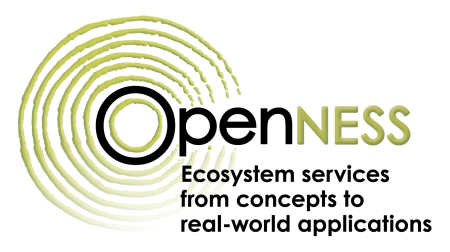Image:

Resource description:
Deliberative valuation is not one particular valuation method, but it is a valuation paradigm (Raymond et al. 2014) providing a framework to combine various tools and techniques that bridges citizens and academia as well as different disciplines within science. Deliberative valuation invites stakeholders and citizens (the general public) to form their preferences for ecosystem services together through an open dialogue, which allows consideration of ethical beliefs, moral commitments and social norms beyond individual and collective utility (Aldred 1997, Satterfield 2001, Wegner and Pascual 2011).
Author/Contact:
Eszter Kelemen
Environmental Social Science Research Group
Publication date:
Images
Requirements:
- Usually need to collect new data.
- Need to work with researchres from other fields as well as with non-academic stakeholders.
- Professional facilitation and communication skills are required.
Advantages:
- Contributes to balancing the power asymmetries between stakeholders by giving voice to more marginalized social groups and by empowering them (if necessary)
- Integrates various knowledge forms (e.g. local, traditional, expert, scientific) and allows for social learning
- Improves the understanding of plural and incommensurable values and hence contributes to framing and managing conflicts
Constraints:
- Operates with small samples which are not statistically representative (although political representativity can be achieved)
- Timely process requiring professional skills
- Its success partly depends on participants availability and general debating culture, participation fatigue might emerge
Licence:
- Free, no licence
Development stage:
- Full, working product
Resource link:
Resource download:
- methodfactsheetdeliberative-valuation.pdf (569.86 KB)
